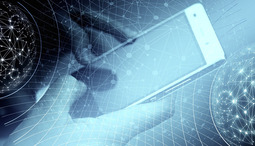- On
- 2 Aug 2023
- Reading time
- 3 minutes
In the last few years, the healthcare sector has witnessed significant progress due to the integration of IT solutions for healthcare. These innovative technologies have transformed patient care, refined diagnostic procedures, accelerated medical research, and bolstered communication and collaboration among healthcare professionals. The implementation of technology in healthcarehas elevated the overall efficiency and effectiveness of healthcare services while preserving patient confidentiality and security. This article examines the multitude of ways IT solutions are sculpting the future of healthcare.
Streamlining Patient Care: How IT Solutions are Enhancing Healthcare Delivery
Patient care is the paramount concern in the healthcare sector. Information Technology (IT) solutions have been instrumental in optimizing patient care, diminishing wait times, and enriching the overall patient experience. Here are some ways technology in healthcare has revolutionized patient care:
- Electronic Health Records (EHRs) – EHRs have significantly transformed patient care by establishing a centralized database for patient details that can be accessed by approved healthcare practitioners. This has contributed to more efficient care coordination, enhanced patient results, and heightened patient contentment.
- Telemedicine – This innovation has rendered healthcare services more attainable for individuals in distant areas, decreased healthcare expenses, and enhanced communication between providers and patients.
- Patient Portals – Secure gateways enable patients to retrieve their health records, arrange consultations, and correspond with their medical professionals.
Leveraging Technology for Better Diagnosis: A Look into IT Solutions in Healthcare
IT solutions have significantly improved the accuracy and speed of diagnoses. Some of the IT solutions used in diagnosing and treating diseases include:
- Clinical Decision Support Systems – These tools analyze patient data and provide healthcare providers with evidence-based treatment recommendations.
- Imaging Systems – IT solutions such as Magnetic Resonance Imaging (MRI), Computed Tomography (CT) scans, and X-rays have improved the speed and accuracy of diagnoses.
- Wearable Devices – These devices continually monitor a patient’s vitals and provide real-time data to healthcare providers, helping them make informed treatment decisions.
Data-Driven Healthcare: The Role of IT Solutions in Medical Research
Information technology solutions have paved the way for advancements in medical research. The capability to gather, manage, and scrutinize extensive data sets has contributed to a deeper comprehension of illnesses, the discovery of novel treatment alternatives, and streamlined clinical trials. A few of the IT solutions employed in medical research encompass:
- Genome Sequencing – This cutting-edge technology aids in pinpointing genetic abnormalities responsible for illnesses, resulting in tailored treatment approaches.
- Big Data Analytics – Information technology solutions can examine enormous quantities of data produced by clinical trials, contributing to an enhanced comprehension of drug effectiveness, long-term results, and medication safety.
Enhancing Communication and Collaboration: IT Solutions for Healthcare Providers
IT solutions have facilitated communication and collaboration among healthcare providers, leading to better care coordination and improved patient outcomes. Some of the IT solutions used in improving provider communication include:
- Digital Health Records – EHRs enable medical professionals to exchange patient data, leading to improved care collaboration.
- Video Conferencing – This innovation enables healthcare practitioners to interact with one another, simplifying consultations and enhancing safety.
Ensuring Patient Privacy and Security: The Importance of IT Solutions in Healthcare
Confidentiality and security hold significant value in the healthcare sector. Information technology solutions play a crucial role in defending patient data from unauthorized access and theft. The subsequent IT solutions are employed to preserve patient information:
- Encryption – This technology ensures that patient data is secure by encrypting the data during transmission and storage.
- Two-factor Authentication – This provides an extra layer of security by requiring two forms of identification before access to patient data is granted.
- Firewalls – Firewalls serve to defend computer systems and networks against unauthorized intrusion.
Conclusion
It's undeniable that IT solutions have left a profound mark on the healthcare sector. From refining patient care to boosting diagnostic precision and accelerating medical research, IT solutions have strengthened the overall efficiency and effectiveness of healthcare practices. Moreover, they have encouraged communication and collaboration among medical experts while preserving the privacy and security of patient data. Consequently, it is crucial for healthcare providers to invest in IT solutions to maintain a competitive edge and deliver outstanding patient care.
The progress of IT solutions in the healthcare domain is revolutionizing the industry as we understand it. When executed and sustained appropriately, these solutions offer substantial advantages to both medical professionals and patients.








